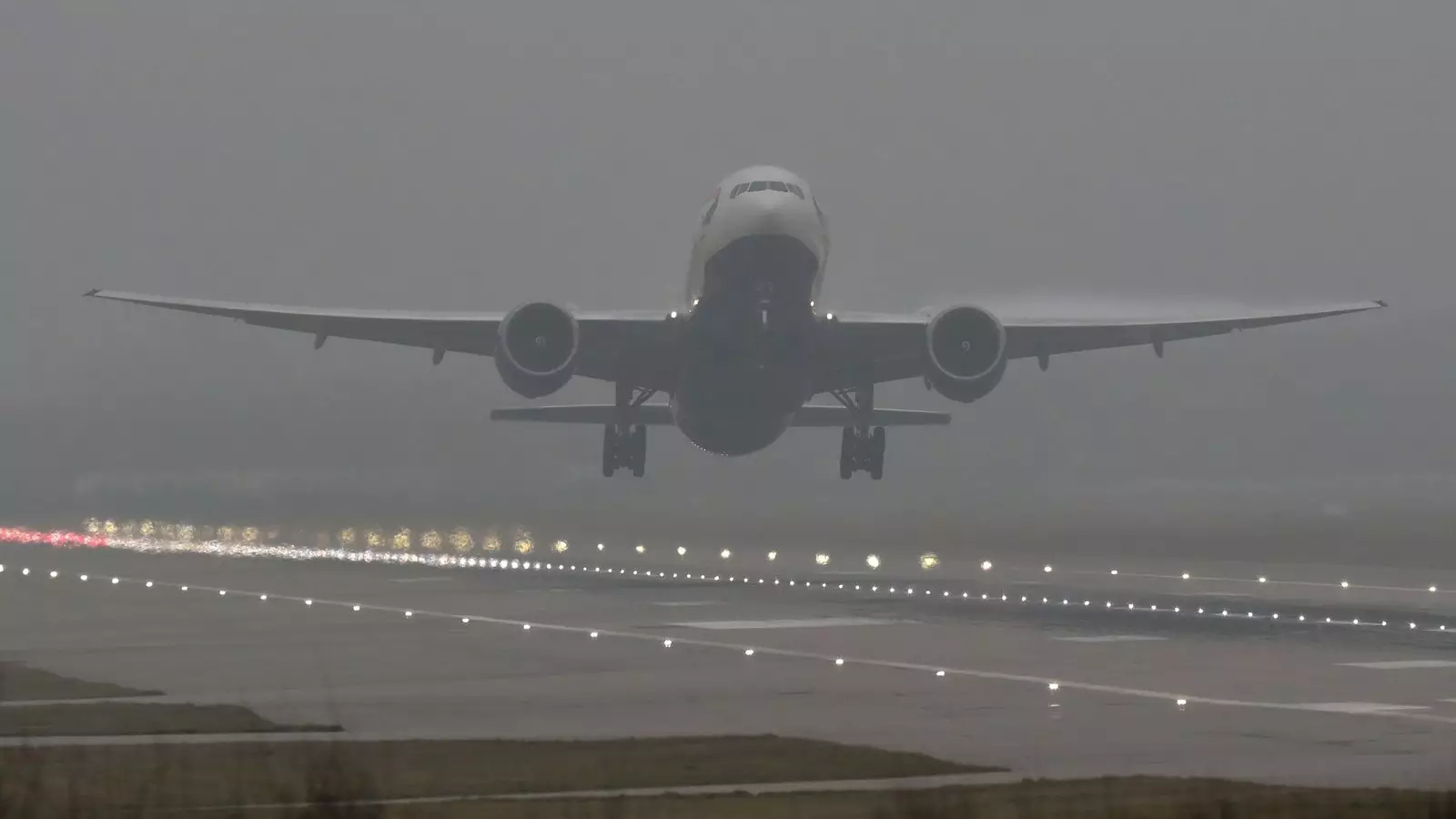As we navigate the bustling travel season during the holiday period, the UK is facing significant disruptions caused by dense fog enveloping many regions. This situation emphasizes the challenges of air travel and the realities of changing weather conditions. With air traffic restrictions in place, thousands of travelers are experiencing delays and cancellations, leading to a ripple effect that impacts not only the air travel industry but also road users and holiday plans.
Recent reports indicate that the heavy fog has already disrupted the travel plans of around 20,000 passengers. According to travel expert Simon Calder, significant delays were noted at major airports including London Heathrow, Gatwick, and Manchester. Passengers reported cancellations and diversions, leading to prolonged uncertainty about their travel itineraries. The National Air Traffic Services (NATS) has highlighted that temporary air traffic restrictions are vital for maintaining the safety of flights under challenging visibility conditions.
Airports have started to adapt to these conditions, as evidenced by Gatwick Airport’s declaration of “temporary air traffic restrictions”, significantly affecting the day’s flight schedules. With more than 35 departures and 26 arrivals delayed and two cancellations reported, travelers have been advised to remain vigilant and check their flight status before heading to the airport. This proactive communication is essential in helping passengers manage their expectations and planning for their journeys.
While air travel is primarily affected, the inclement weather is also posing serious challenges for road users. The Met Office has issued warnings for motorists about the dangers associated with low visibility. In many areas, visibility dipped to as low as 100 meters, which can lead to accidents if drivers fail to adjust their speed and maintain a safe distance from other vehicles.
The advice given by authorities is not just precautionary; it aims to avert dangerous situations that can arise when unexpected weather changes occur. Motorists are urged to allow additional time for their journeys and adjust their driving techniques accordingly. The combination of heightened travel during the holiday season and poor visibility creates a perfect storm for potential mishaps on the roads.
The weather backdrop shaping these travel challenges extends beyond fog. The Met Office has forecasted that the worst fog impact will be felt in the South East and central England, with similar conditions likely over East Anglia and parts of South Wales. Interestingly, while fog warnings were not in place, the Met Office has committed to closely monitoring the evolving situation throughout the holiday weekend.
As holiday travelers make their plans, it is crucial to keep an eye on weather updates. Indeed, the projections suggest that fog will not be the only weather challenge this season. A yellow warning for heavy rain across parts of Scotland as we approach New Year’s Eve adds another layer of complexity to travel plans. Edinburgh’s famed Hogmanay celebrations could face disruptions from these adverse conditions, forcing event organizers to remind attendees to prepare adequately for potential weather changes.
Despite the hope for a return to normalcy following the fog, forecasters warn that unsettled weather is expected to continue beyond this weekend. As we steer into January 2025, travelers should brace for varying weather patterns that may include rain, wind, and even snow in some areas.
The holiday season remains one of the busiest for air travel, with figures suggesting a peak in flights on Sunday at Gatwick. With 769 flights scheduled, it’s imperative for travelers to stay informed about potential delays or cancellations as the weather evolves. Given the unpredictability of the current weather system, airlines and airports will need to remain agile in their operations to minimize disruption and prioritize passenger safety.
The convergence of fog and holiday travel has created a challenging environment for passengers across the UK. As air and road travelers navigate through these conditions, staying informed and cautious becomes paramount. Understanding the implications of weather on travel plans is essential for a seamless holiday experience.

